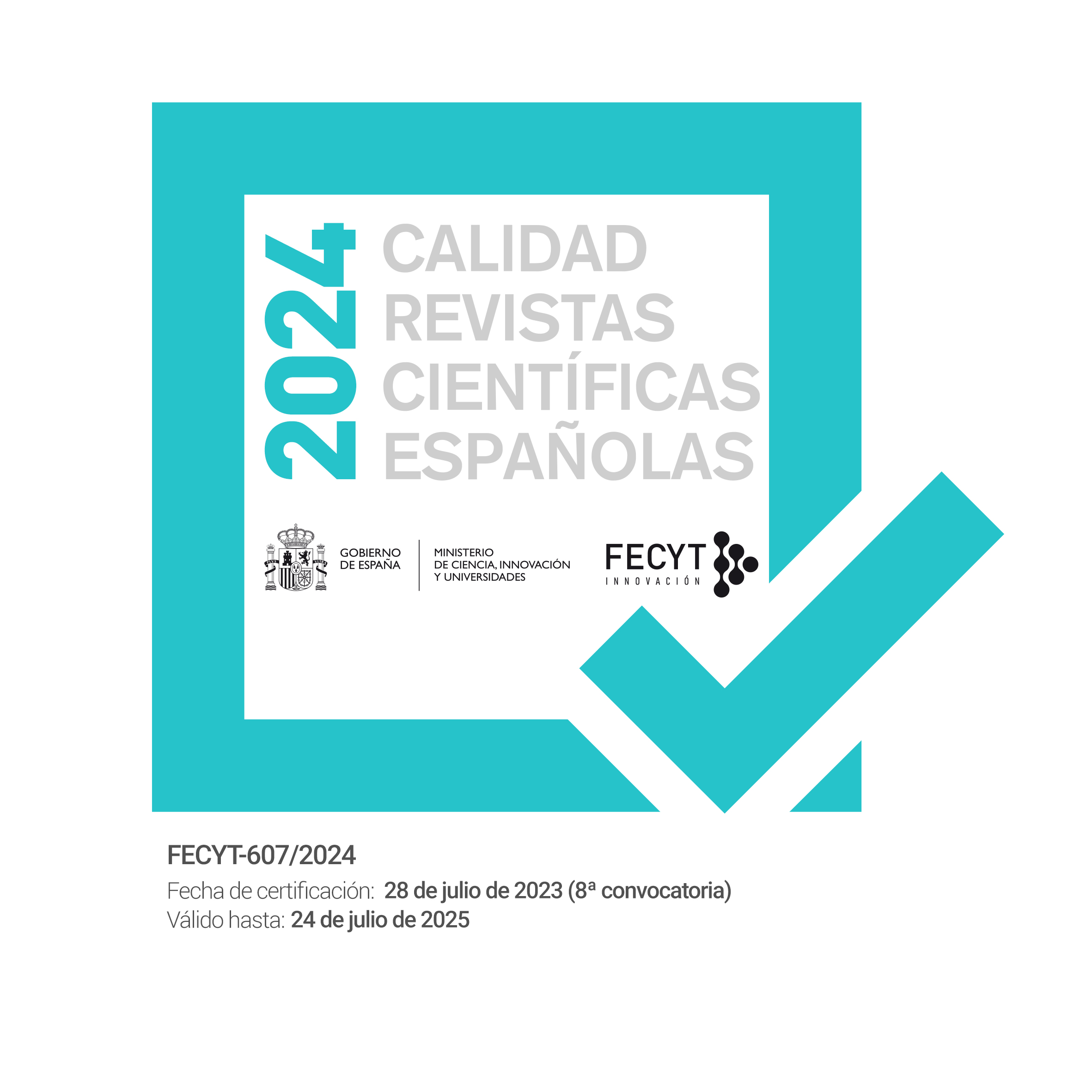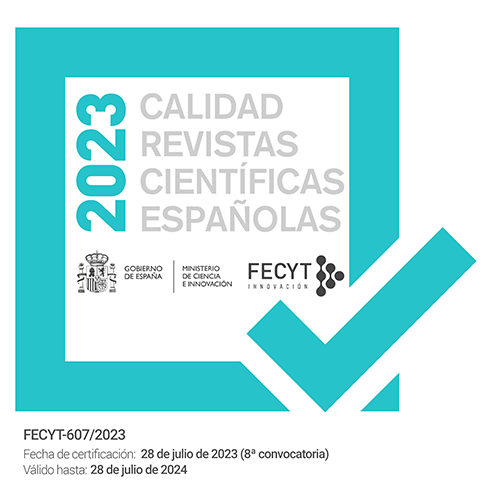Peer review process
ARBITRATION SYSTEM
Double-blind peer review.
The works must be original and unpublished, and must not have been accepted for publication in another journal or book. The articles may be sent and published in languages of Latin origin (Spanish, Portuguese, Italian, French, Galician or Catalan) or in English.
The Editorial Board of the Journal, once it has been verified that the article complies with the rules regarding style and content, indicated in the guidelines for authors, will send the article to two reviewing expert members of its various Committees and Councils, asking to other external evaluators, if necessary, that are considered suitable within the field of research, according to the double-blind peer model. In case of discrepancies in the evaluation, the original would be submitted to a third reviewer.
The evaluation will examine formal aspects (clarity, structure and organization, expository style, thematic precision, grammatical correctness) and content aspects (coherence with the journal editorial line, relevance of the topic, issues of current interest, review of topics, substantiation, internal coherence, bibliographical references). The reviewers will have an evaluation form that contains information for both the journal and the authors. In addition, they may comment on the text for the authors, with recommendations and proposals for changes, if any, for a possible improvement of the paper.
Based on the evaluation and recommendations of the reviewers, the direction of the Journal will communicate the results to the authors by email, at the address they have used to send the article. The managing editor of the Editorial Board will send to the main author the result of the review: 1) admission for publication without any changes; 2) admission for publication with minor corrections; 3) the article needs important corrections for its admission 4) rejected. Comments and remarks will also be sent, with the pertinent modifications derived from the revision.
Authors should be willing, if needed, to collaborate in the process of reviewing the article. If the article has been accepted with modifications, authors must forward a new version according to the demands and suggestions of the revision. If they wish, authors can also contribute a letter to the Editorial Board in which they will indicate the content of the modifications of the article.
Considering the degree of compliance with the modifications requested, the editor will decide on whether or not the publication of the article should proceed. That decision will be communicated to the author by the direction of the Journal.
The finally approved articles will be sent to the coordination of the corresponding number, who will order them and write an introduction to the number in which they will present in a synthetic way the monographic theme and the content of the articles. The magazine has three: Monographic theme; Miscellany; LED (Readings, Experiences, Debates).













